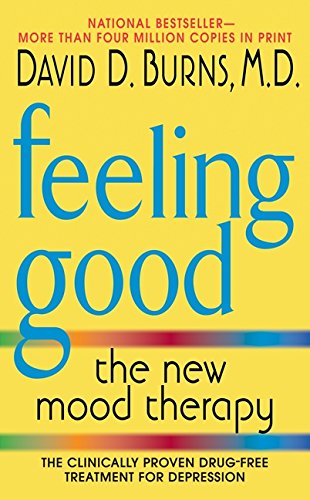There is a popular Shakespearian saying that “there is nothing either good or bad, but thinking makes it so”, which basically means there is nothing objectively “good” or “bad”. This is the guiding force behind David D Burns’ book, Feeling Good: The New Mood Therapy. Burns, a Stanford-trained psychiatrist, builds a strong case for the reason why certain individuals are depressed—their distorted thinking.
Burns’ primary thesis is that our distorted thoughts cause depressive feelings in us. He calls these cognitive distortions, and puts them into ten categories. With many real-life examples, he points out how distorted thoughts could wreck a person’s life.

When I started reading the book, I could immediately sense my depressive thoughts were being lifted. And, when I evaluated it from a biblical lens, the book’s author did make a lot of valid points.
…the loophole in Burns’ thesis is his inconsistency. He states that there are no objective moral standards of right and wrong, yet says that there are certain thoughts that are distorted…
However, the loophole in Burns’ thesis is his inconsistency. He states that there are no objective moral standards of right and wrong, yet says that there are certain thoughts that are distorted, the question is how does one know that a certain thought is distorted if there are no objective standards.
From a personal standpoint, this book came in handy when I was going through a tough time (loss of relationship) and things seemed quite hopeless. I felt lack of energy, loss of motivation, a sense that things would not get better—all classical symptoms of clinical depression.
It was during this time that a friend, who studied with me in Bible college, recommended the book. I was in such a desperate state that I would do anything to feel better. I got hold of the book and started reading.
From a Christian standpoint, we have the Bible that can be used to identify distorted thoughts.
Though initially skeptical of it, as I read the book, it seemed the author was articulating my feelings word to word. In fact, the author gives a tool by which we can identify distorted thinking patterns. He divides these distortions into ten categories, such as ‘all-or-nothing feeling’, ‘overgeneralisation’, ‘jumping to conclusion’, ‘emotional reasoning’, to name a few. As I read through the book, I could see a marked change in my mood.
From a Christian standpoint, we have the Bible that can be used to identify distorted thoughts. In this sense, it could work well with the Christian worldview where we have God’s objective revealed standards and grace freely given to us. Burns is right in pointing out that so many times we live with a perfectionist’s attitude that we fail to see life as a process of events. The book covers a range of topics from ‘the approval addiction’ to suicide prevention. I would highly recommend this book to anyone who is going through a very depressive episode. But I am not a trained psychotherapist, so those who are going through depression must also seek professional help.





